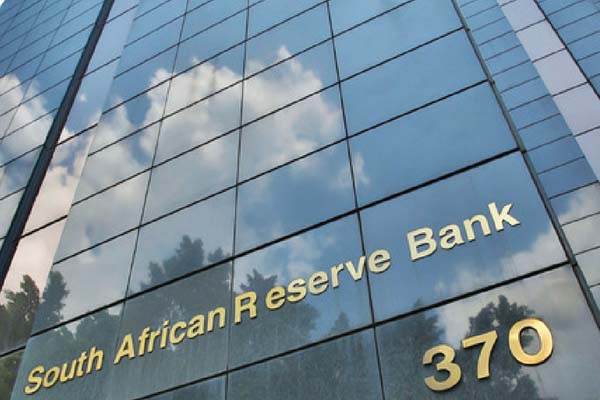
JOHANNESBURG — South Africa’s ruling African National Congress has adopted a resolution calling for the nationalisation of the central bank and land expropriation without compensation, a senior party official said on Wednesday. Reuters
Any mention of nationalisation in South Africa is enough to spook investors, since left-wing elements of the ANC have also called for mines and banks to be State-owned.
Similarly, land has remained an emotive issue two decades after the end of apartheid, and the ANC has been under pressure to redress racial disparities in land ownership.
Unlike most central banks in the world, the South African Reserve Bank has been privately owned since it was established in 1921. But its shareholders have no control over monetary policy, financial stability policy or banking regulation.
Following a meeting of party delegates, the head of the ANC’s economic transformation committee, Enoch Godongwana, said changing the ownership of the South African Reserve Bank would not affect its independence.
He said the party had also agreed to initiate amendments to the Constitution to achieve land expropriation without compensation, but gave no timeline. He said there would be no illegal occupation of land.
Following the proposal made in July by the ANC at a policy conference to nationalise the bank’s shareholding, South Africa’s Reserve Bank said that changing its shareholding would not affect its mandate, because that mandate is derived from the Constitution.
Godongwana said no timeline had been laid down for the plan to acquire the central bank’s shares or for any directives to Parliament to change the country’s laws to effect the change.
- Chamisa under fire over US$120K donation
- Mavhunga puts DeMbare into Chibuku quarterfinals
- Pension funds bet on Cabora Bassa oilfields
- Councils defy govt fire tender directive
Keep Reading
“No change in the constitution, no change in the Reserve Bank Act,” he said. “We’ve also said it’s not likely to have an impact at all because shareholders in the Reserve Bank do not affect monetary policy in any way.”
Godongwana said the changes would come after “more work” was done to prepare for the bank’s nationalisation.
In July, when the party said it would like the central bank to be wholly State-owned, investors were initially worried and knocked the rand.
The currency was little changed on Wednesday immediately after the announcement by Godongwana, but analysts said markets would react negatively.
“The SARB resolution will spook the markets even if it is ultimately unlikely to be implemented,” said Anne Fruhauf political analyst with consultancy Teneo.
On the land issue, Godongwana said some of the delegates became “rowdy” during the heated debate that “nearly collapsed the conference”. ANC officials rejected reports that delegates had come to blows during the debate.
Godongwana said the delegates eventually agreed to initiate some amendments to the constitution in order to achieve expropriation of land without compensation.
“The condition is that it must be sustainable and not impact on food production and food security,” he said, adding that there should be no illegal occupation of land.
Asked how the markets would react, Godongwana said: “My suspicion is they are going to say ‘wow’ and react badly … my sense is, if I was the markets, I would simply hold off.”
Most of South Africa’s land remains in white hands 23 years after the end of white minority rule.
Experts say the plan to expropriate land in South Africa will not signal the kind of often violent land grabs that took place in neighbouring Zimbabwe, where white-owned farms were seized by the government for redistribution to landless blacks.
However, some economists and farming groups have said the reform could hit investment and production.
Around eight million hectares (20 million acres) of land have been transferred to black owners since apartheid ended, equal to 8 to 10% of the land in white hands in 1994, the government says. The total is only a third of a 30% target by 2014 set by the ANC.











